How Music Helps with Reading, Writing, and Arithmetic Skills (E9)
We’ve heard that music helps with reading, writing, and arithmetic skills for our young children. But, how? And, how can you actually include a music program in your own home that will help your preschoolers grow in these skills? Those are the questions we’re answering today.
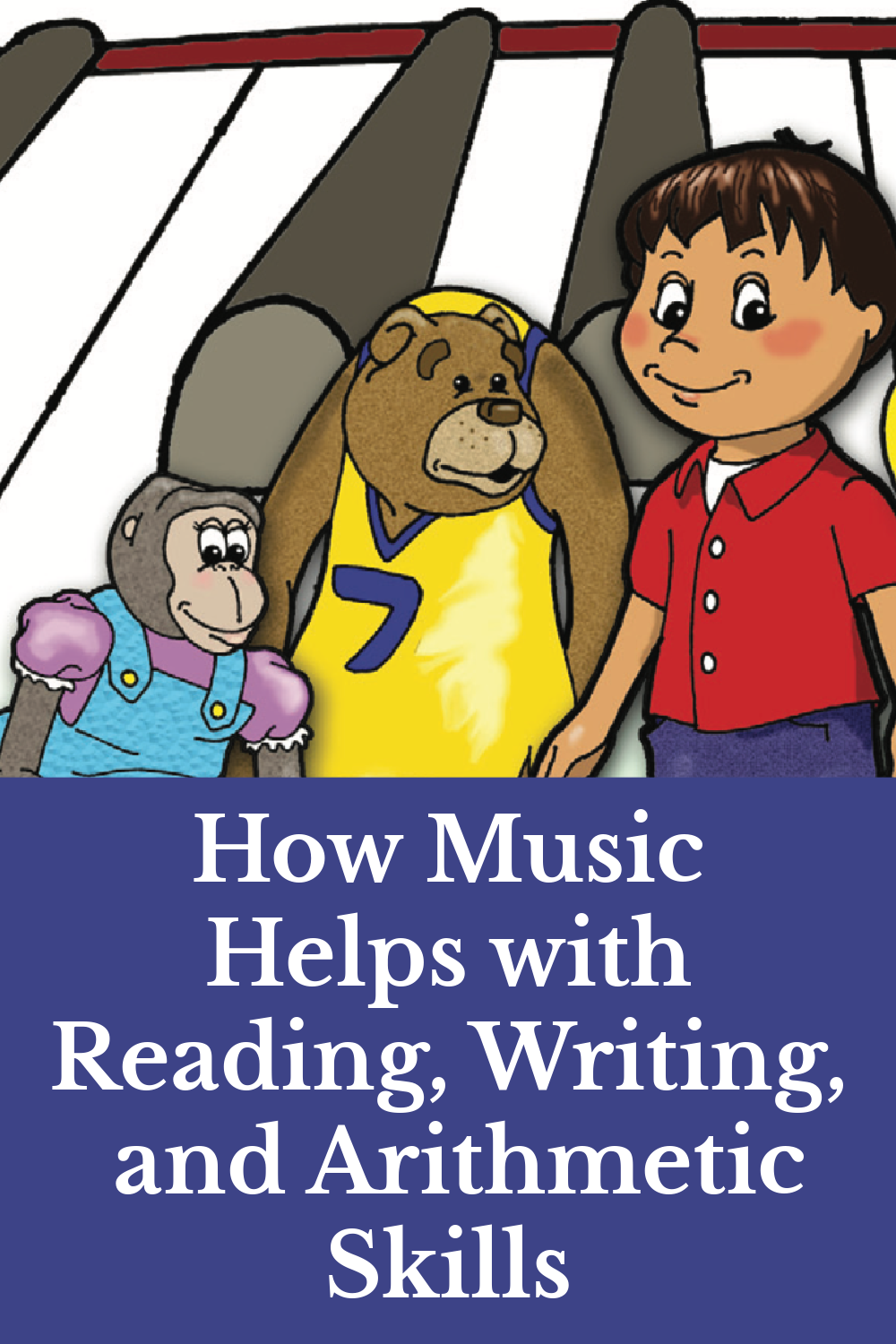
Scroll down for a free download of this guide!
The Research is Clear
We are just beginning to understand the importance of music in a child’s development. The research has come back showing an incredible difference in the Math and Language skills of preschool children who had early lives WITH music compared to those WITHOUT music.
It is significant to note that the most dramatic results were achieved by children who had PIANO lessons.
These children outperformed all other groups at puzzle solving, up to 80% higher scores than the non-musical children.*
Based on the research, students with music, specifically piano, in their preschool years, have more success in their later education.
Start with KinderBach
We know these facts, but how does a homeschool parent, perhaps with no music background, cover this base of education? What are the important parts in learning the piano for brain development?
Who has the time to meet curriculum standards and provide music? Given the time, where would one start?
KinderBach was created to be used by teachers (even parents!) regardless of their music background. There are activity books, online videos, audio music tracks, and stories. Parents don’t have to play anything other than online videos – no instrument knowledge is necessary.
We believe that homeschool parents can teach. All they need is the correct information to communicate.
What is KinderBach?
KinderBach gives homeschooling parents the tools to teach music. It provides a solid music foundation for the children while, at the same time, overlapping and enhancing basic math and language skills.
With KinderBach, music education is not an additional activity but another method of covering math and early literacy. It is a partnership that combines curriculum goals and piano basics.
KinderBach provides the teacher with complete lesson plans, videos, worksheets, and age-appropriate music learning activities.
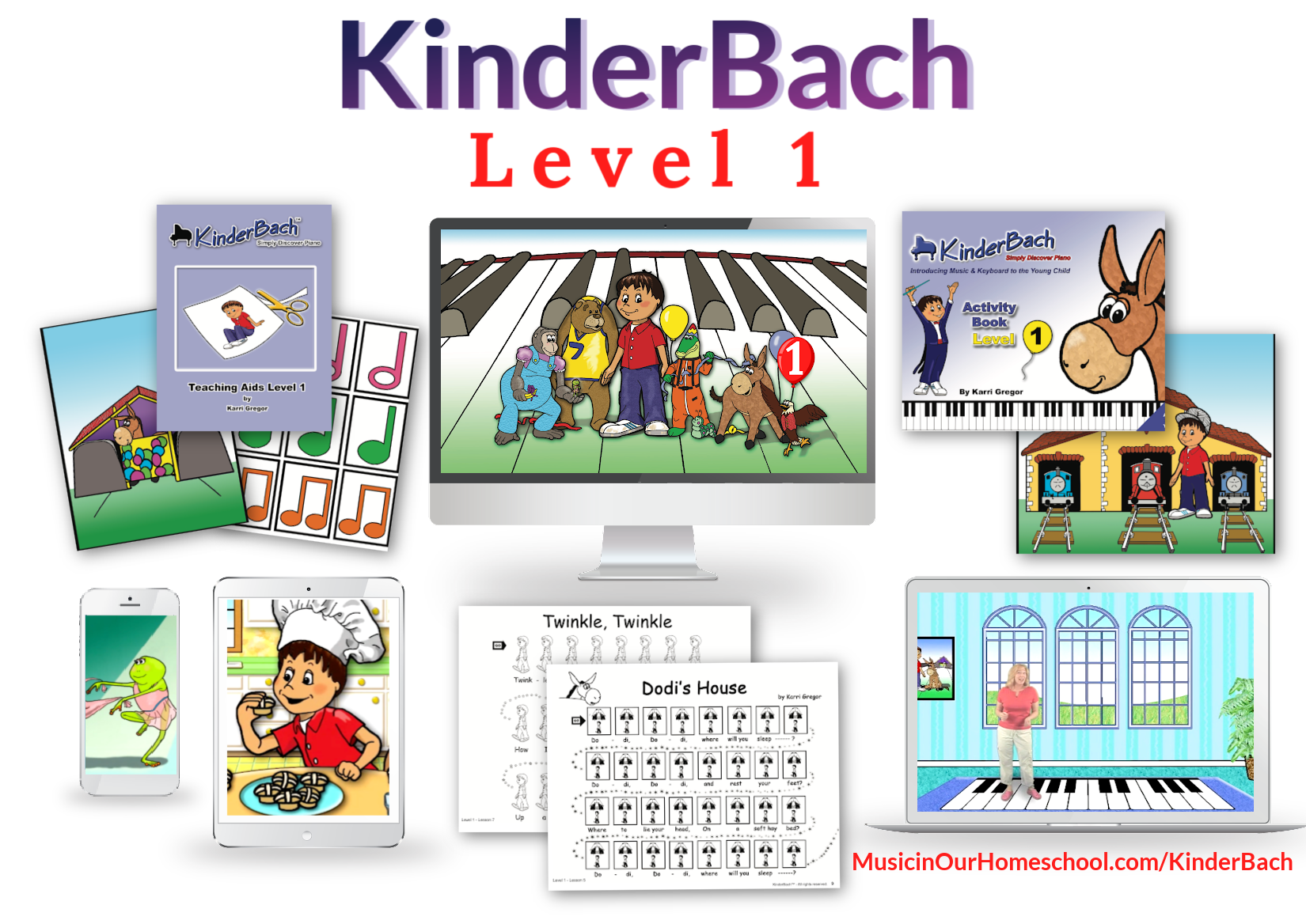
How Music Helps with Reading
1) Decoding – The alphabet, phonics, and numbers are all symbols that need to be interpreted to be understood. Children need to be able to decode in order to read. Music is rich in simple sound/symbol relationships, a perfect precursor to reading language. With movement and rhythm, children can greatly increase their decoding skills.
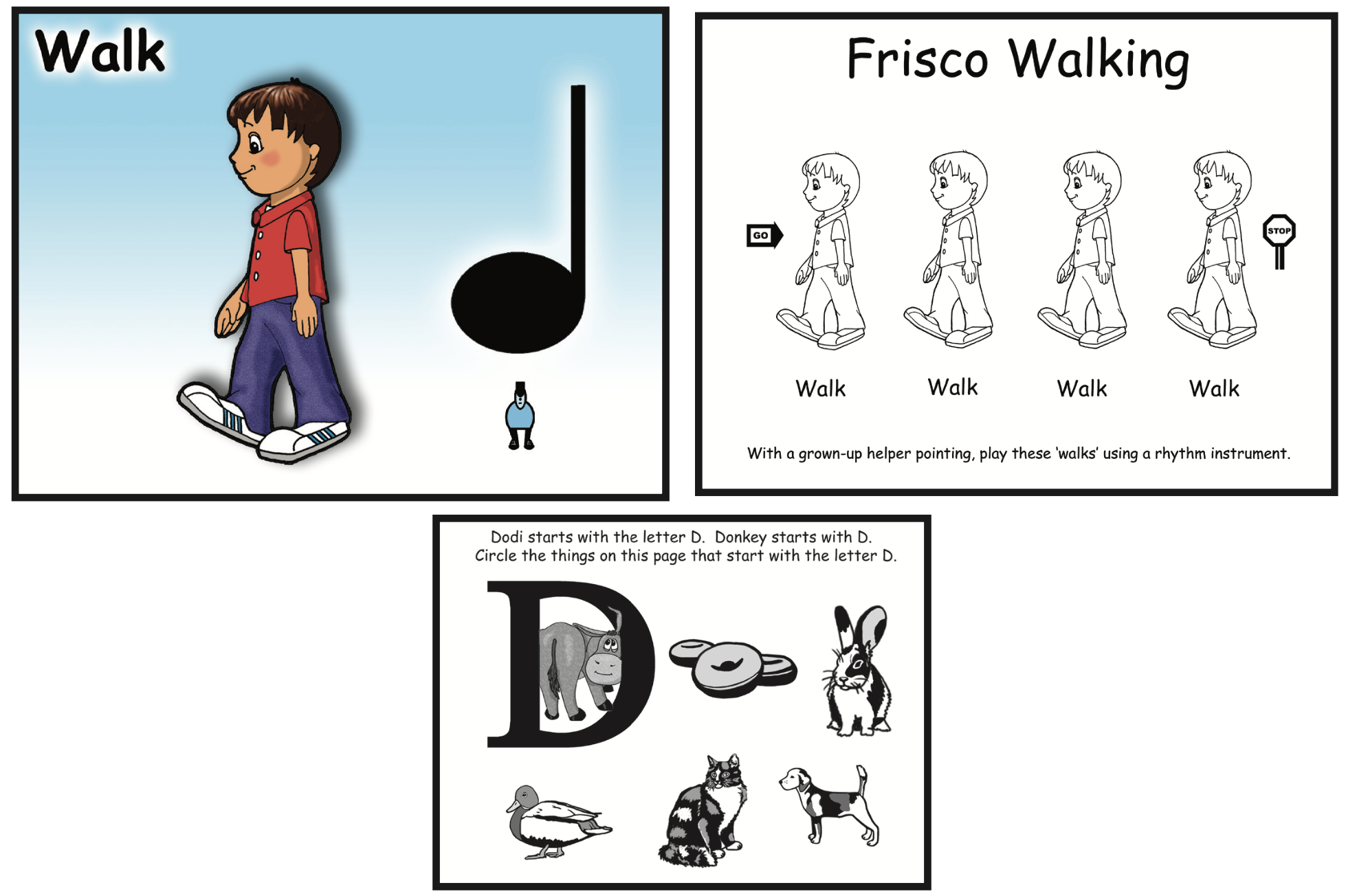
2) Beat and Rhythm – Language has natural subtle rhythms. Therefore, the ability to keep a steady beat is a good indication of a child’s reading readiness. Understanding and duplicating rhythms encourage children to become rhythmic readers.
KinderBach example: Listening and Clap Back – In KinderBach, children are taught to listen to a rhythm, decipher it, and clap it back correctly as a group.
KinderBach example: Known Rhythms – Children will use known melodies and find the rhythm within. They will play songs like “Twinkle, Twinkle Little Star” on rhythm sticks by ear.
3) Common Symbols – It helps that some of the music terms and symbols actually exist in our language. This fact makes piano lessons an easy overlap with reading.
4) Aural Discrimination – determining the difference between high & low, loud & quiet, as well as interpreting what they hear.
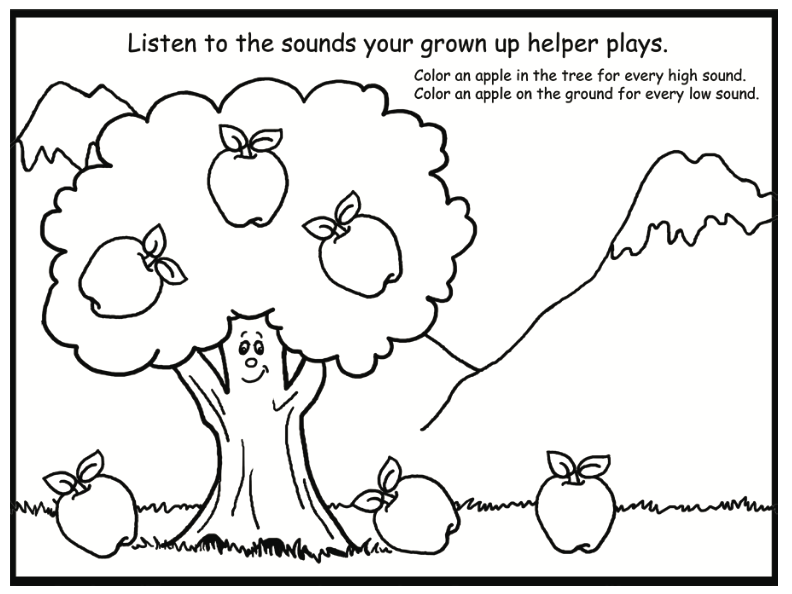
5) Tracking – Left to right, obviously an overlap with reading. KinderBach provides easy and fun tracking exercises for children to listen to and do that are not monotonous. Combined with gross motor movements that cross the mid-line during singing, reading music greatly enhances their tracking skills. Making music is one of the few activities that use both sides of the brain. It is very helpful in left/right brain integration.
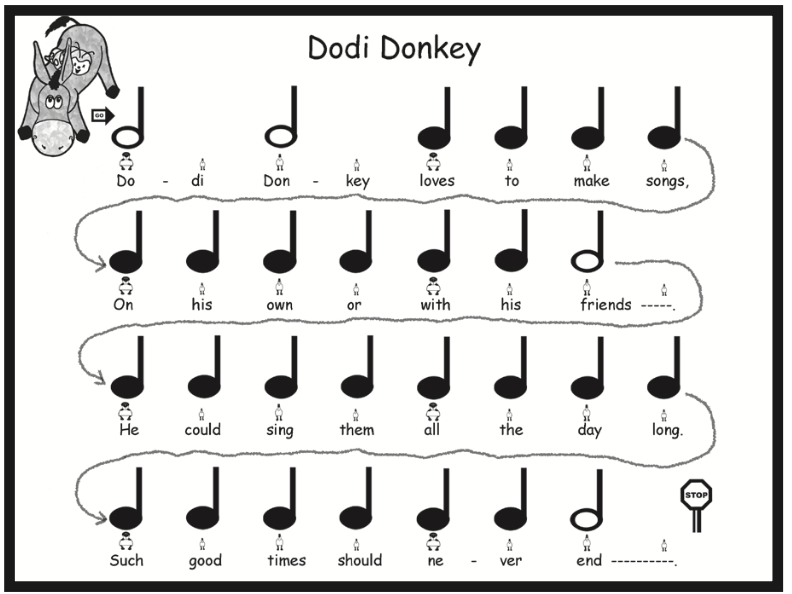
6) Articulation, Phrasing, Proper Breathing, Posture, Expression – These are all areas to be addressed in training good readers. Singing is a positive, entertaining way to lay a firm foundation. Folk songs in KinderBach provide cultural context to language.
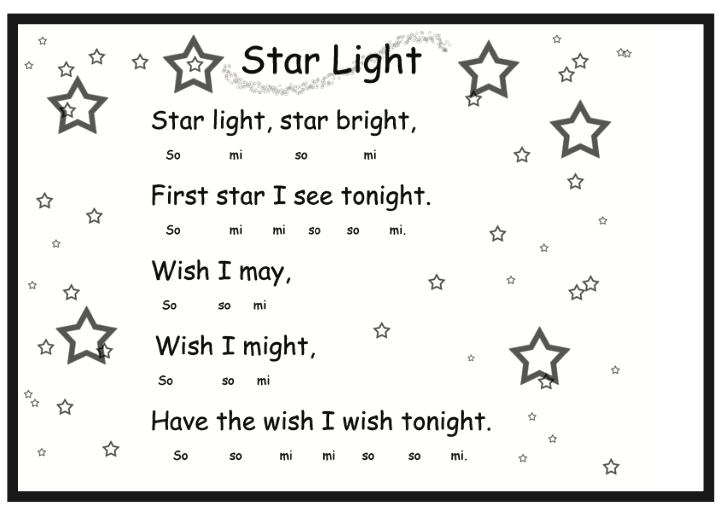
How Music Helps with Writing
1) Identification of Left and Right – Songs and activities to identify and promote recall.
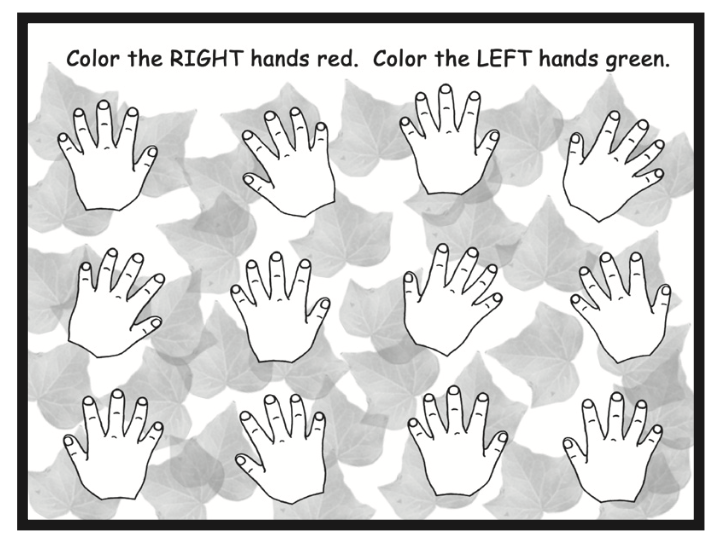
2) Separation of the Hand – Identification and numbering of fingers. Finger numbers for piano start at the thumb and move on to the index fingers. Manipulation and strengthening of these digits are essential for these skilled movements.
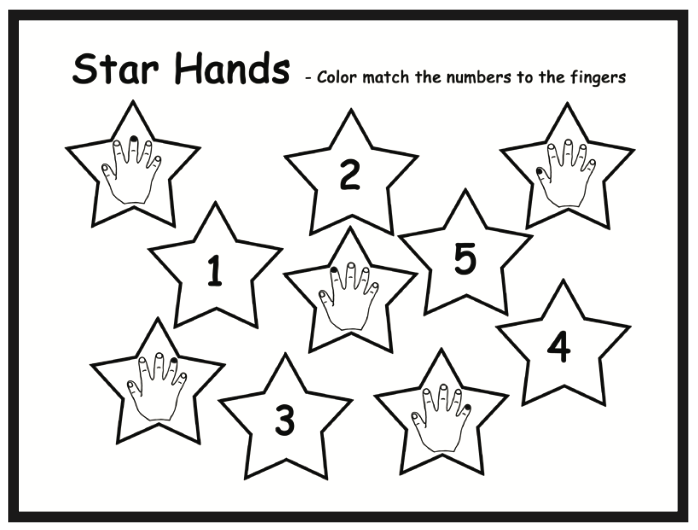
3) Coordination and Control – is exercised by playing at the keyboard. Playing music uses both sides of the brain. Not only because the piano can be played with both hands but also because it combines motor skill learning with emotion.
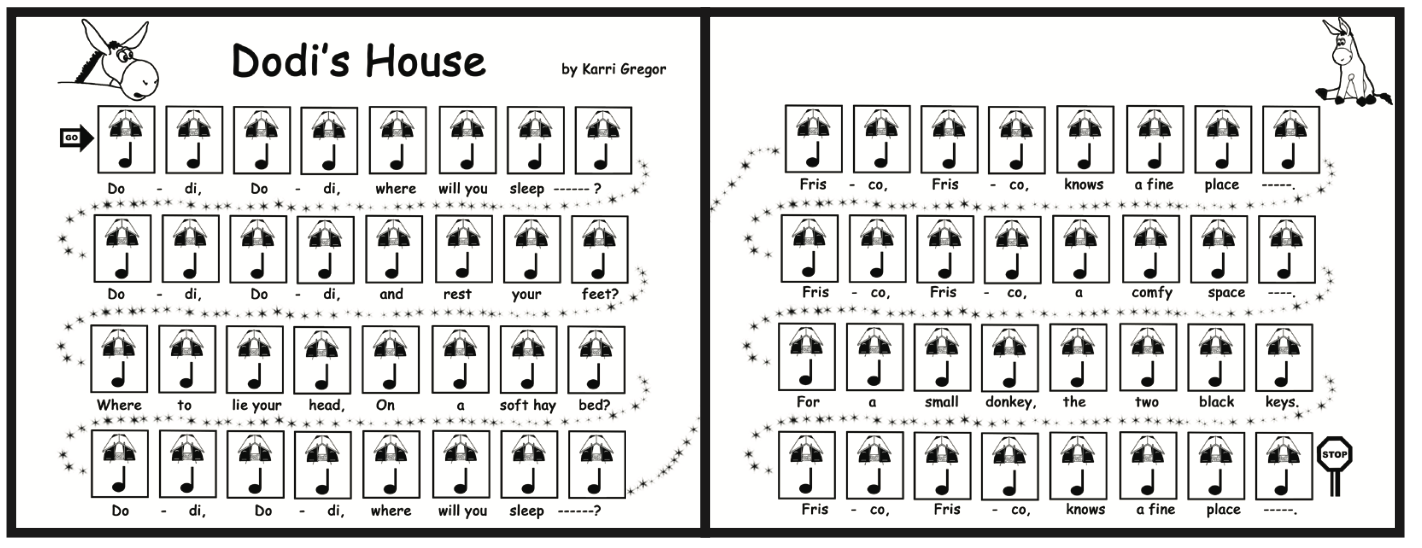
4) Fine Motor Skills – Besides actually playing the piano with individual fingers, KinderBach has other activities for finger movement. Coloring, cut & paste, as well as circling or grouping symbols to identify them.
How Music Helps with Arithmetic
1) Listening and Identifying – the distance of tones, strengthens the neural pathways. Physical movement emphasizing the difference speaks to the kinesthetic learners. Music is measurement and difference, listening to math or more commonly known as the “Mozart Effect”.
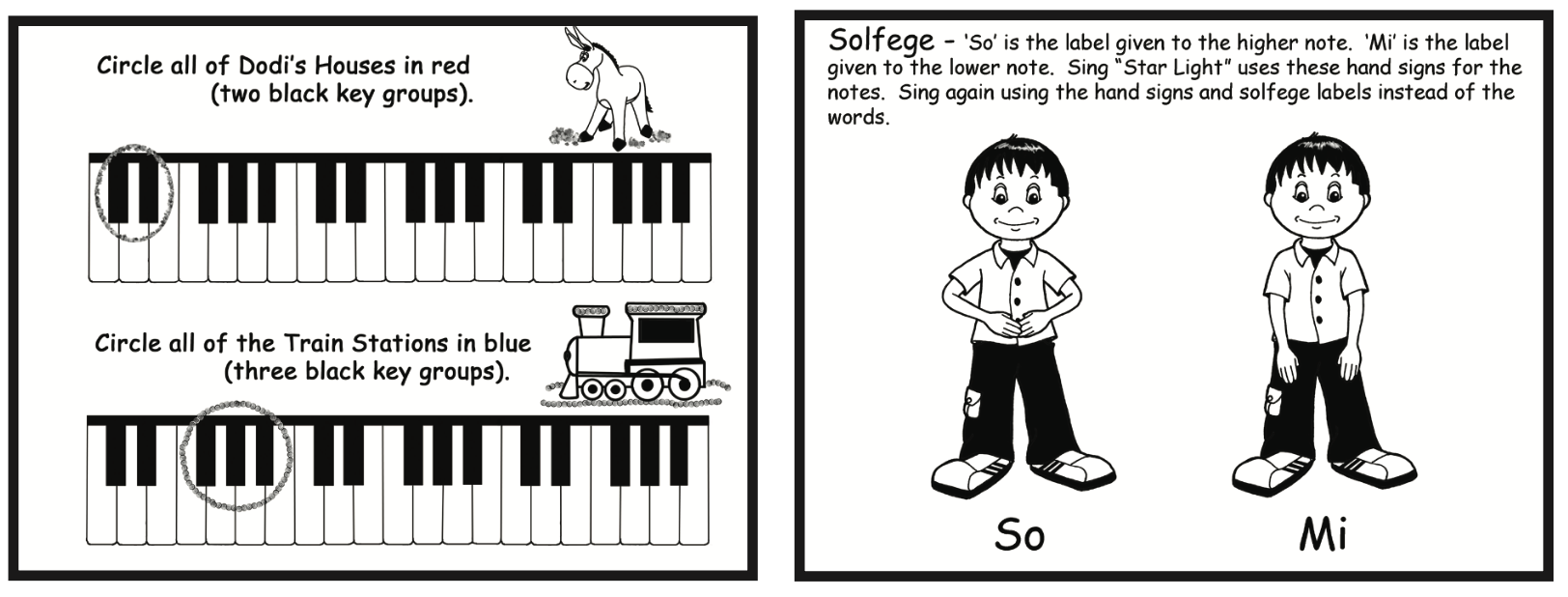
2) Sequential Learning – is an important math skill. Music classes accomplish this by listening to a song, singing a song, playing it with rhythm instruments, analyzing differences, and then playing it on the keyboard.
3) Beats and Note Value – The skill of identifying the beat value of a given note symbol overlaps with basic math skills. Playing rhythms deeply internalizes this skill.
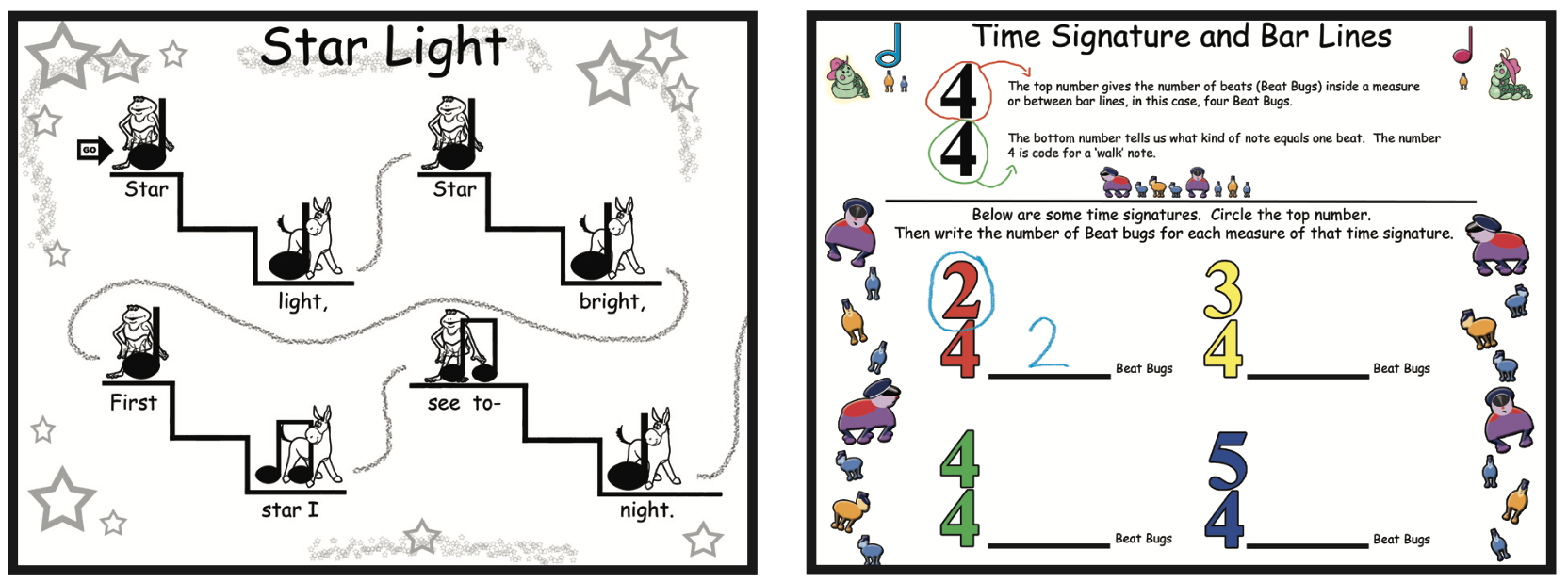
4) Division of Measures, Barlines, and Time Signatures. The spatial temporal part of the brain is exercised as notes are grouped and classified.
Music in the Homeschool
We know that music in the home classroom is important and that preschool piano is the best way to take advantage of the musical window in brain development. KinderBach is an effective way to provide the musical advantage and yet address basic curriculum foundations. It provides any teacher the materials to address this opportune time in her children’s lives.
KinderBach can be used in many different ways. You can run through an entire lesson or a couple of segments everyday or every other day – it’s up to you as the teacher!
The lessons cover a range of activities from watching the short video scenes, echo singing, fine motor movement, and implementing the information with gross motor movement.
Download a Free Copy of the “KinderBach and the 3 R’s Guide”
See the YouTube Video “How Music Helps with Reading, Writing, and Arithmetic Skills” here:
Listen to the Podcast Episode here:
Listen here or subscribe and follow The Music in Our Homeschool Podcast through your favorite podcast app!
Have you found other ways that music helps with reading, writing, or arithmetic? Share in a comment below!
FOOTNOTE:
*DR. FRANCIS RAUSCHER AND DR. GORDON SHAW AT THE UNIVERSITY OF CALIFORNIA – STUDY QUOTED BY LYNNELL HANCOCK, “WHY DO SCHOOLS FLUNK BIOLOGY”, NEWSWEEK, FEBRUARY, 19 1996.

Giveaway: 2 $200 Gift Cards!
Update: Giveaway is complete.
Who would like to win a $200 gift card?
Register on the Rafflecopter form below to win one of two $200 gift cards of your choice (winners will be able to choose between either an Amazon gift card or a Gift-O-Gram gift card). These gift cards have been generously funded by 20 participating blogs – including mine!
The April Showers Homeschool Giveaway will run from April 15, 2024 – April 24, 2024 @ 11:59 PM EST.
Here’s the fine print: Winners for the April Showers Homeschool Giveaway will be drawn no later than April 26, 2024. The winning entry will be verified, and upon successful verification, they will be contacted via the email address they signed up with. If the winning entry is void, a new winner will be drawn. Winners have 48 hours to claim their prize otherwise they forfeit their winnings. If the winner fails to claim their prize, Hope In The Chaos reserves the right to select a new winner. Participating bloggers and members of their households are not eligible to win. The 2024 April Showers Homeschool Giveaway is hosted by Hope In The Chaos and will run from Monday, April 15, 2024, through Wednesday, April 24, 2024, at 11:59 pm EST. Entrants must be 18 years old or older and be a member of a current homeschooling family. By entering this giveaway, you agree to be added to the email lists of the participating blogs represented here. Void where prohibited.
a Rafflecopter giveawayRelated Posts:
- Piano for Preschoolers with KinderBach
- KinderBach ~ Level 1
- Why and How to do “Music and Movement” with Your Preschoolers
- 10 Songs All Preschoolers Should Know
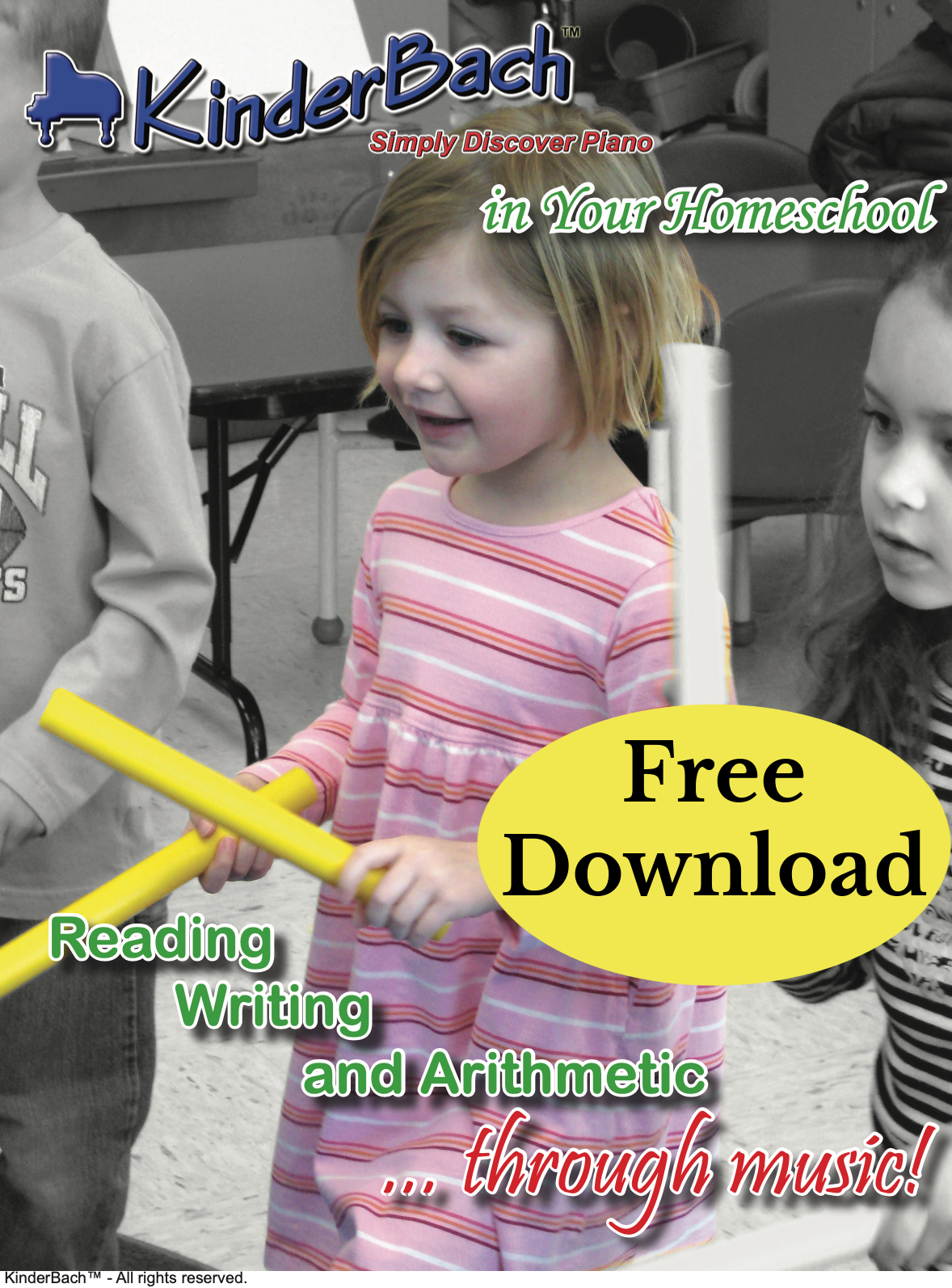
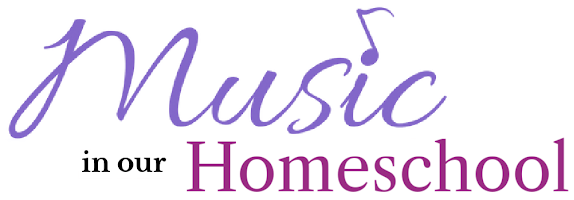

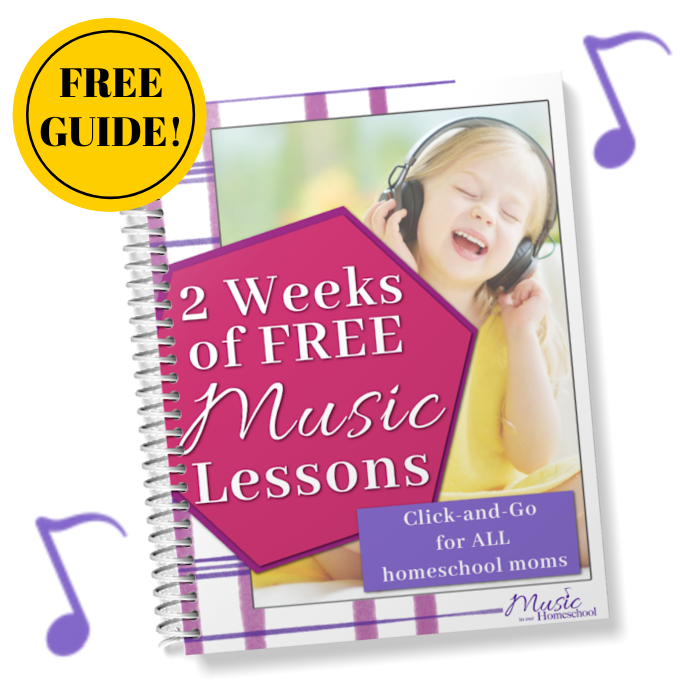
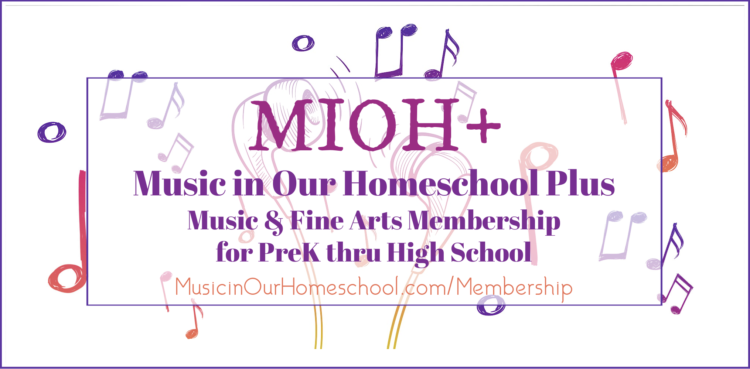
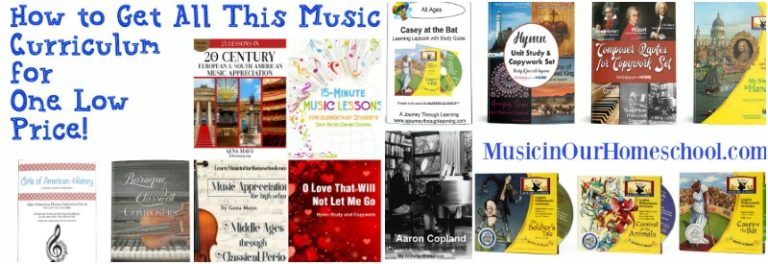


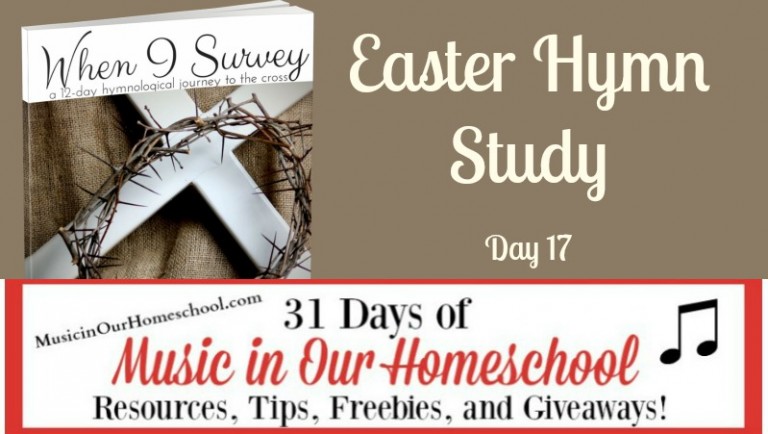
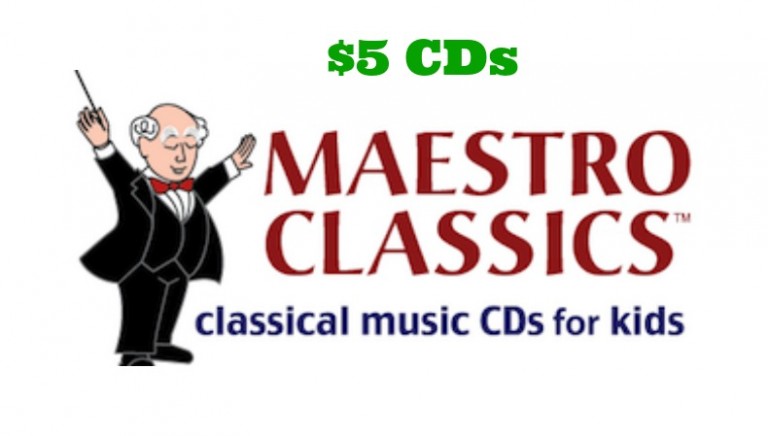
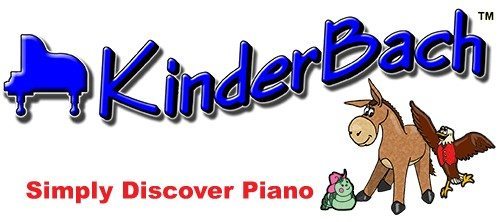

Thank you for making it so simple to include music in a home education, Gena! 🙂
You’re welcome!
~Gena